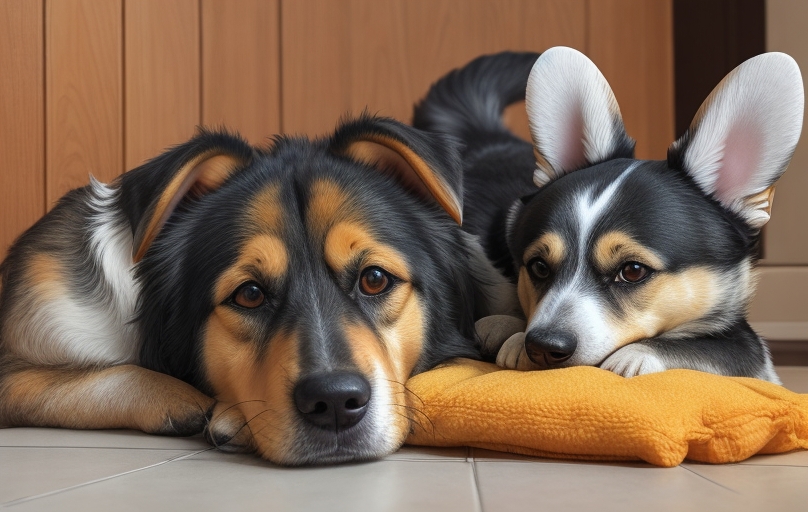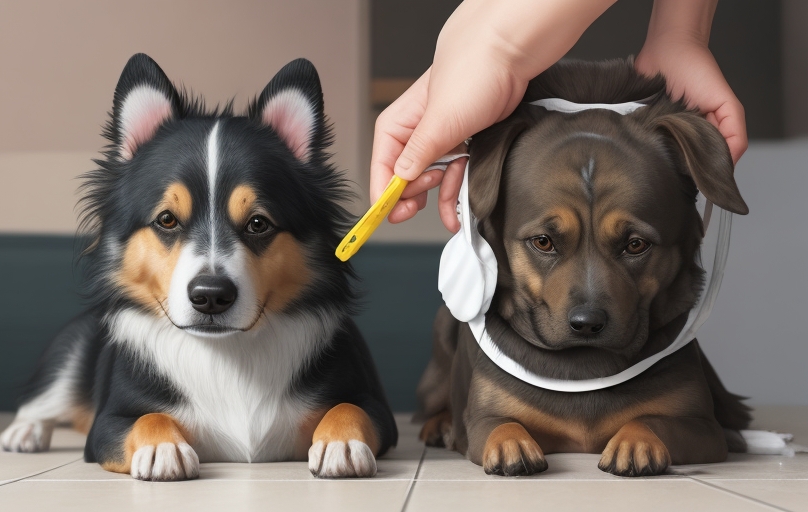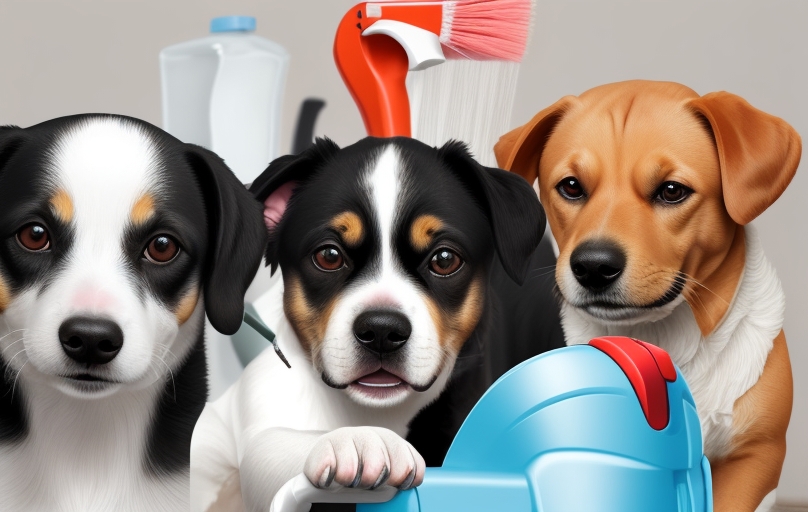Dogs, like humans, require regular grooming and hygiene practices to stay healthy. One often-overlooked aspect is Signs that Your Dog’s Ears Need Cleaning. In this article, we will explore the signs that indicate your furry friend’s ears need a good cleaning, why it’s essential, and how to do it safely.
Importance of Ear Cleaning
Maintaining your dog’s ear health is of utmost importance. A dog’s ear is prone to various problems, such as infections and wax buildup. Regular cleaning can prevent these issues and promote overall well-being.
Scientific Research Studies
A study published in the Journal of the American Veterinary Medical Association found that the most common cause of ear discharge in dogs is otitis externa, or inflammation of the outer ear canal. Otitis externa can be caused by allergies, infections, or parasites.
Another study published in the journal Veterinary Dermatology found that the most common type of ear infection in dogs is bacterial. Bacterial ear infections are often caused by bacteria that are normally present in the ear canal, but they can also be caused by bacteria that enter the ear canal from the outside.
Signs that Your Dog’s Ears Need Cleaning

Like any other body part, a dog’s ears can accumulate dirt and debris, leading to discomfort and potential health issues. Recognizing the signs of dirty ears is essential for maintaining your furry friend’s ear health. Here, we’ll explain in detail the various signs that indicate your dog’s ears may need cleaning:
1. Foul Odor
One of the most noticeable signs of dirty ears in dogs is a foul odor emanating from their ears. If you detect a strong, unpleasant smell when you are close to your dog, it’s likely coming from their ears. This odor is often a result of trapped moisture, wax, or the presence of bacteria or yeast in the ear canal.
2. Excessive Scratching or Pawing
Dogs use their paws and claws to scratch when they experience discomfort or irritation. If you notice your dog scratching or pawing at their ears more frequently than usual, it’s a clear sign that something is bothering them. Persistent scratching can worsen the condition, potentially causing injuries or infections.
3. Redness and Swelling
Inspect your dog’s ears regularly, especially if they exhibit unusual behavior. Redness and swelling in and around the ear canal are typical indicators of ear problems. Inflamed ears can be painful, and the redness signifies an underlying issue that requires attention.
4. Discharge
A key sign of dirty ears is the presence of discharge. This discharge may vary in color, but it’s often dark and waxy. It accumulates in the ear canal and can lead to blockages, further exacerbating the problem. The discharge may also be a breeding ground for harmful microorganisms, such as bacteria or yeast.
5. Head Tilting or Shaking
When a dog’s ears are uncomfortable or dirty, they might tilt their head to one side or shake it vigorously. This behavior is their attempt to dislodge the irritants in the ear canal. While head tilting or shaking can provide temporary relief, it’s essential to address the root cause by cleaning their ears properly.
6. Unusual Ear Behavior
Pay attention to any changes in your dog’s behavior related to their ears. If your dog is overly sensitive to having their ears touched or reacts aggressively when you try to examine or clean them, it could be a sign of ear discomfort. Additionally, if your dog is rubbing their ears against furniture or the ground, it’s an indication that something is amiss.
7. Hearing Loss or Disorientation
In severe cases of ear issues, dogs may experience hearing loss or become disoriented. If your dog seems less responsive to sounds or appears disoriented without a clear reason, it’s possible that their dirty ears are affecting their hearing and equilibrium.
How to Safely Clean Your Dog’s Ears

Once you notice these signs, it’s time to clean your dog’s ears. Here’s a step-by-step guide to ensure safe and effective cleaning:
- Gather the necessary supplies: ear cleaning solution, cotton balls, and treats for your dog.
- Calm your dog by offering treats and gentle petting.
- Hold the ear flap up and apply the cleaning solution as directed.
- Gently massage the base of the ear to loosen the dirt and wax.
- Let your dog shake their head; this helps dislodge the loosened debris.
- Use cotton balls to wipe away the dirt from the ear canal’s surface.
- Never insert anything deep into the ear canal to avoid injury.
Choosing the Right Cleaning Products

When choosing ear cleaning products, opt for those specifically formulated for dogs. Consult your veterinarian if you’re unsure which product to use. Avoid using alcohol or hydrogen peroxide, as these can be harmful to your dog’s ears.
Preventing Ear Problems
Prevention is key to maintaining your dog’s ear health. Some preventive measures include regular ear checks, keeping ears dry, and maintaining your dog’s overall hygiene.
When to Consult a Vet
If your dog’s ear issues persist or worsen, it’s essential to consult a vet. They can diagnose and treat more severe problems and provide guidance on long-term ear care.
Conclusion
In conclusion, maintaining your dog’s ear health is a vital part of responsible pet ownership. Regular cleaning and vigilance can prevent uncomfortable ear problems and keep your furry friend happy and healthy.
Frequently Asked Questions
1. How often should I clean my dog’s ears?
Ear cleaning frequency depends on the dog’s breed and activity level. Some dogs may require monthly cleaning, while others can go longer between cleanings.
2. Can I use homemade solutions to clean my dog’s ears?
It’s best to use products specifically designed for dog ear cleaning. Homemade solutions may not be safe and could harm your dog’s ears.
3. My dog hates ear cleaning. What can I do to make it more comfortable for them?
Try associating ear cleaning with positive experiences, like treats and praise. This can help your dog feel more at ease during the process.
4. Are there breeds more prone to ear problems than others?
Yes, dogs with floppy ears, such as Cocker Spaniels and Basset Hounds, are more susceptible to ear issues due to reduced airflow.
5. What should I do if I suspect my dog has an ear infection?
If you suspect an ear infection, consult your veterinarian immediately. They can diagnose the problem and recommend the appropriate treat.
